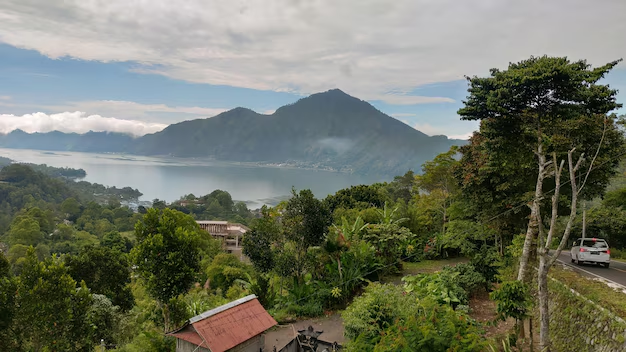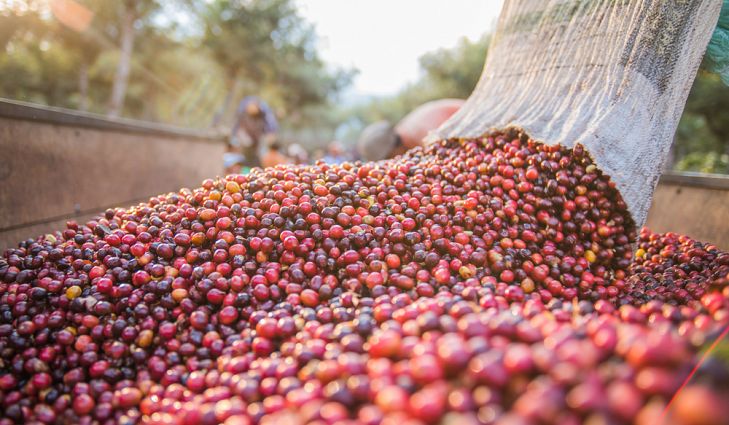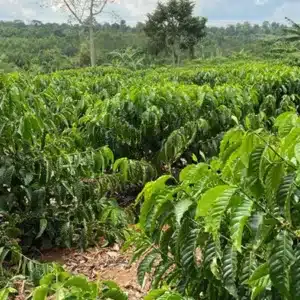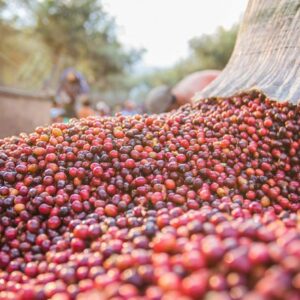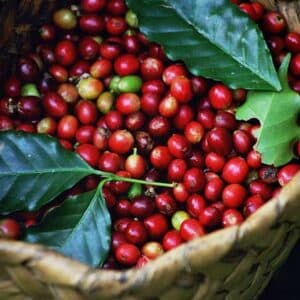Kenya AB Top – Nguku
About This Coffee
About This Coffee
This coffee was grown by smallholder farmers living in and around Nguku Factory in Kenya’s Murang’a County. Farms sit at altitudes of 1,700 to 1,900 meters above sea level along the western slopes of the Aberdare Mountain range. The climate and geography of Murang’a, particularly in this area, are well-suited for coffee production. The county boasts the fertile red volcanic soil and cool temperatures that coffee loves and for which this renowned growing region is known. Nguku is one of four factories (as wet mills are known in Kenya) operated by the Kahuhia Coffee Growers Cooperative Society (CGCS). Kahuhia CGCS, in total, has approximately 3,000 active members.
Kenyan coffees are graded by size. AB grade coffees are the second-largest sizing and offer very comparable flavor profile to AA grades, at less of a premium.
| Country of Origin | Kenya |
|---|---|
| Region | Muranga |
| Producer Type | Small Holder Farmers |
| Farm Name | Various smallholders |
| Co-Op | Kahuhia Coffee Growers Cooperative Society |
| Processing | Washed |
| Growing Altitude | 1700m – 1900m |
| Harvest Season | 2022/23 |
|---|---|
| Bag Weight | 60 KG BAG |
| Bag Type | Grain Pro / Ecotact |
| Plant Species | Arabica |
| Variety | Batian, Ruiru 11, SL28, SL34 |

History of Coffee in Uganda
Coffee has deep roots in Uganda, with robusta beans growing wild around Lake Victoria long before colonial times. While Ugandans traditionally used these beans for cultural rituals, commercial coffee farming only took off during British colonial rule in the early 20th century. The British saw potential in Uganda’s fertile soils and introduced Arabica coffee in the highlands, while promoting robusta across the country. After independence in 1962, coffee became Uganda’s leading export, despite disruptions during periods of political instability. A revival in the 1990s, driven by the Uganda Coffee Development Authority, transformed Uganda into one of Africa’s top coffee producers, renowned for its high-quality robusta and specialty Arabica beans.
Growing Coffee in Uganda
In Uganda, the most ideal conditions for Arabica coffee cultivation are found in the high-altitude regions of Mount Elgon in the east and the Rwenzori Mountains in the west. These areas, with elevations ranging from 1,300 to over 2,300 meters above sea level, provide the cool temperatures and rich volcanic soils that Arabica coffee thrives on. Uganda produces both washed and naturally processed coffees, and in recent years, experimental methods like honey processing have also gained traction. The country grows a variety of Arabica coffee strains, including SL14, SL28, and Blue Mountain, with specialty coffee grades ranging from AA, AB to Peaberry, known for their distinct flavors and high quality.
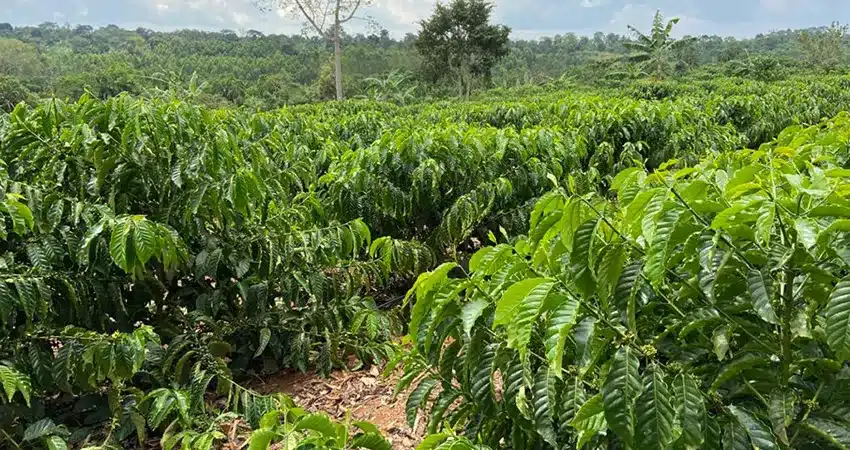
Sample Roasting Guide
Consistency is key when sample roasting. Yet, your first crack won’t always happen at the same time, which makes it difficult to know when to end your roast. Use this guide to know when to discharge depending on how long it took you to reach first crack.
